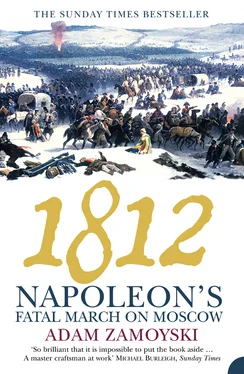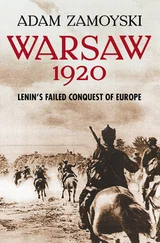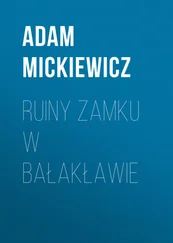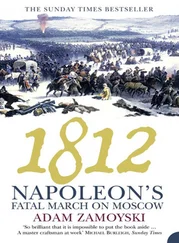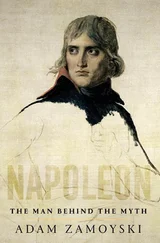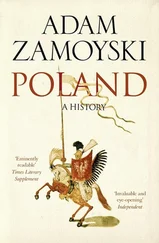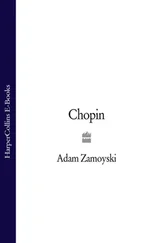In France, early attempts at a balanced study were complicated by political factors: the regime which replaced Napoleon’s soon after the events required anything to do with him to be represented in the most negative terms. Censorship also played a part in Russian assessments, for more complex reasons. The events of 1812 and their aftermath raised questions about the very nature of the Russian state and its people, and, as the historian Orlando Figes nicely puts it, ‘the nine-teenth-century quest for Russian nationhood began in the ranks of 1812’. 2
This quest was innately subversive of the Tsarist system, and led in the first place to the Decembrist Rising of 1825. It was pursued, along divergent paths, by those who sought a more modern Russia integrated into the mainstream of Western civilisation, and by the slavophiles, who rejected the West and all it stood for, seeking instead a truly ‘Russian’ way. The events of 1812 were used by both sides to back up their arguments, rapidly attaining mythological status and becoming increasingly distorted as a result. This dualism was only complicated with the advent of Marxism.
The first French historians to write about 1812 were either hostile to Napoleon or motivated by a desire to ingratiate themselves with the post-Napoleonic regime, and therefore laid all blame at the feet of the demon Bonaparte. But most French writers on the events of the campaign, whether they were participants or later academic historians, have followed a more measured, and broadly similar, path. While often displaying a degree of embarrassment over such an apparently imperialist venture and the misery France inflicted on the Russian people, not to mention her own and her allies’ soldiers, they have tried to redeem Napoleon’s reputation and the honour of French arms by a generous representation of the doughtiness of the Russian soldier and of the implacable nature of the Russian climate. They have also clutched at the straw of comfort held out by the Romantic imagination of the 1820s and 1830s, which turned the picture of sordid disaster into a vision of greatness in adversity.
In the last decades of the nineteenth century, distance as well as a growing cordiality between the two nations made it possible for French historians to approach the subject more objectively. The centenary, coming as it did just before the Great War and at a time when the two nations were allies, saw cooperation between the historical commissions of the French and Russian staffs, and led to the publication of much primary source-material. But French historians continue to show a certain reluctance to deal with the war, and have come up with no satisfactory general study of it.
The first Russian account of the events, by a colonel on the general staff, was produced with such alacrity that it was published, in English, as far afield as Boston within a year. It was undoubtedly a piece of propaganda, intended to pave the way for Russia’s future role in the affairs of Europe, but it did reflect the perceptions of large sections of Russian society. It depicted Alexander as the catalyst who rallied a gallant patriotic nobility and a loyal peasantry eager to defend Faith, Tsar and Fatherland.
Dmitri Petrovich Buturlin, himself a participant, who wrote the first detailed account of the war, added a couple of new elements. One was the idea of Russia as the innocent victim of aggression. The other was the image of Kutuzov as the quintessential Russian hero, simple but wise. A.I. Mikhailovsky-Danilevsky, whose four-volume history came out in 1839, depicted Alexander as a moral beacon awakening the spiritual as well as the physical forces of the Russian people in defence of their fatherland. It was he who first called it the ‘ Otechestvennaia Voina ’, the ‘Patriotic War’. Underlying much of their writing was the view that it was the Almighty, acting through the Tsar and the Russian people, who had confounded the evil one. This being so, French assertions that they had been defeated by the Russian winter rather than the Russians themselves were dismissed as irrelevant.
It was against the backdrop of this fundamentally spiritual interpretation that in the summer of 1863 Tolstoy began work on his novel War and Peace , in which he was to add his own highly personal gloss on the events.
Tolstoy had originally been enthusiastic about the programme of liberal reforms launched by Tsar Alexander II when he came to the throne in 1855. He had even tried to pre-empt them by offering the serfs on his estate a deal that would free them from their obligations and give them the land they worked. But the serfs were suspicious and rejected his offer. Instead of turning Tolstoy against the peasants, this helped to put him off liberalism in general. He embraced the slavophile view that the liberals would destroy Russia by imposing foreign ideas and institutions alien to the Russian character. He also reacted against the wave of self-abasement among intellectuals who had turned the recent defeat in the Crimean War into a paradigm for Russian backwardness. In his depiction of the events of 1812, Tolstoy traces a metaphor of the penetration of Russia by foreign influences: Napoleon is the harbinger of an ‘alien’ order, which some of Alexander’s ‘contaminated’ entourage favour. But it is rejected by the Russian nation. Yet this is no glorification of the Russian common people – the hero of Tolstoy’s novel is a deferential peasantry led by the minor nobility who, unlike the Frenchified aristocrats, have remained true to Russian values. But Tolstoy’s work is not all fantasy, and he did his homework.
The first sentence of War and Peace expresses outrage at French doings in Genoa and Lucca in 1799, while on the next page one of the protagonists affirms that Russia will be ‘the saviour of Europe’. With this opening, Tolstoy firmly dismissed the notion of the French invasion of 1812 as an act of gratuitous aggression: to him it was clear that it was merely part of a prolonged struggle between France and Russia for hegemony over Europe. Yet it was to be some time before a Russian historian would mention this.
The second half of the nineteenth century saw the publication of a great many diaries, recollections and letters of participants in the events; of staff documents giving troop numbers and dispositions; and of official documents, orders and letters. It also brought forth a number of very useful studies of specific aspects of the campaign, of individual battles, and of social reactions to the events.
The next generation of Russian historians to deal with the subject in any depth were influenced by the works of Marx and Engels and took a more pragmatic view. It is true that Aleksandr Nikolaevich Popov, writing in 1912, idealised Kutuzov and ‘Russian society’, but his more down-to-earth contemporary Vladimir Ivanovich Kharkievich admitted that Kutuzov had faults, and rejected the image of Russia as innocent victim. Konstantin Adamovich Voensky took a similar line, and related Russian military failures in 1812 to the shortcomings of the country’s constitution and social structure. A number of other historians produced studies of specific aspects, in which they turned up evidence of a less glorious response by Russian society than had been represented hitherto, and confirmed that logistics and climate had been largely responsible for the outcome.
Perhaps the most forceful of this generation of historians, and the one who reacted most vigorously against the old pieties, was Mikhail Nikolaevich Pokrovsky. According to him, the Tsarist state was bent on extending Russian hegemony beyond its borders in order to guarantee the survival of an essentially feudal system at home. He went so far as to say that Napoleon’s invasion of Russia was ‘an act of necessary self-defence’ on his part. He was deeply critical of Kutuzov and other Russian generals. He stressed the role of the weather in the defeat of the French, and belittled the role of ‘Russian society’, questioning the myth of the patriotic peasants. Those who did resist the invader did so, according to him, in defence of their chickens and geese, not their fatherland. 3
Читать дальше
